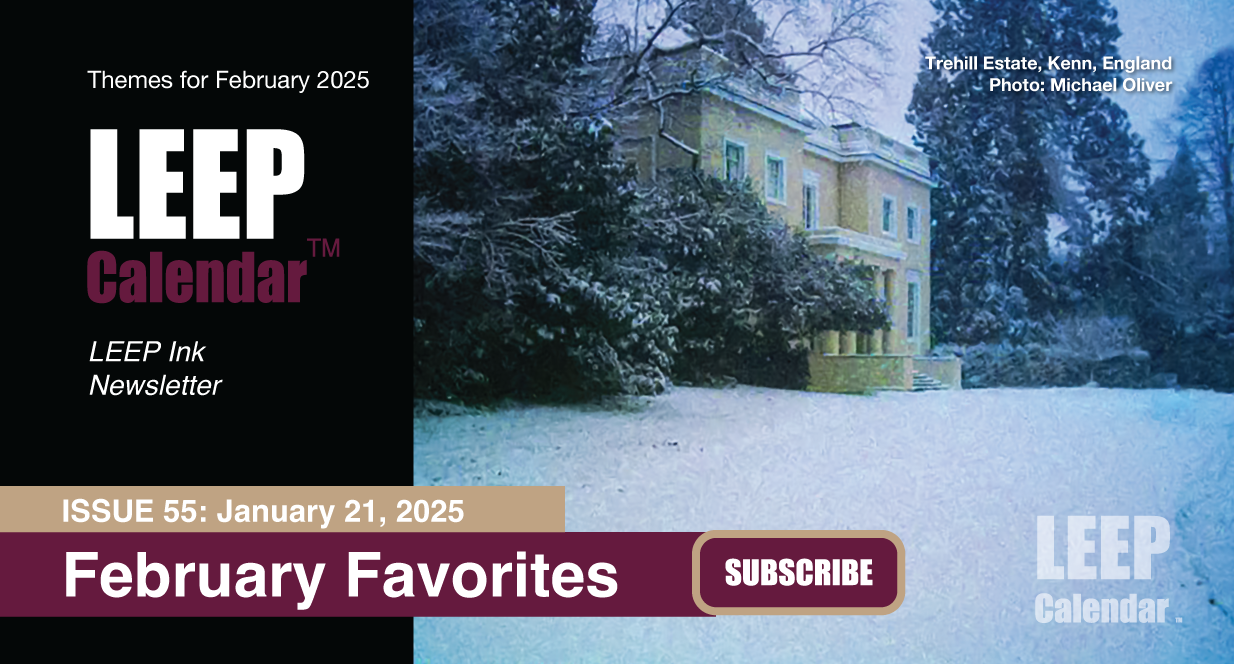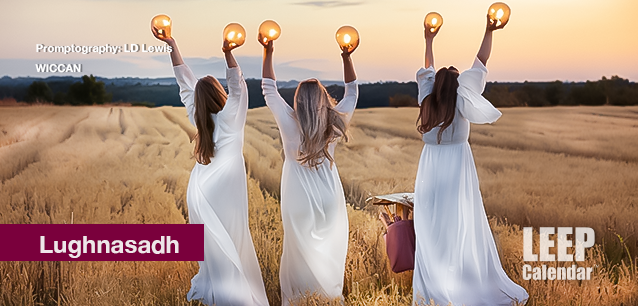 AD
AD
Country
- Africa
- Alcohol, Tobacco & Drugs
- Animals, Fish, Insects & Birds
- Anniversaries
- Australia
- Books
- Brazil & S.America
- Buddhism
Category
- Afghanistan, AF
- Aland Island, AX
- Albania, AL
- Algeria, DZ
- American, Samoa, AS
- Andarra, AD
- Angola, AO
- Anguilla, Al
Event Type
- Daily
- Weekly
- Annual
- Recurring
Duration
- All
- 1 Day
- 2 Day
- 3 Day
- 4 Day
- 5 Day
- 6 Day
Event Type
- Daily
- weekly
- Annual
- Recurring
Event Type
- Daily
- weekly
- Annual
- Recurring
Today is: May 01
Big Day of Giving
Bubba Day, Ntl.
Chocolate Parfait Day, Ntl.
Constitution Day (MH)(1979)
Executive Coaching Day
Flu Season Begins, Southern
Hey! Day (US-PA)
Homeowner's Day, New
Hug Your Cat Day
Keep Kids Alive—Drive 25, Ntl.
Labor Day/Worker's Day International (CN)
Law Day
Lei Day, (US-HI)
Love Day, Global
Loyalty Day
May Day
May One Day
Mother Goose Day
Podenco Day, Intl. (ES/UK)
Prayer, National Day of
Purebred Dog Day, Ntl.
Saint Efisio, Festival of (IT)
School Principal's Day, Ntl.
Silver Star Families of America Day
Air Quality Awareness Week
Antiqua Sailing Week (AG)
Auctioneers Week, Ntl
Computer, Choose Privacy Week
Fiesta San Antonio (US-TX)
Galveston Historic Home Tour (US-TX)
Gardening Week, Ntl. (UK)
Golden Week (JP)
Maternal Mental Health Week
Multiple Sclerosis Week (UK)
Perinatal Mental Health Awareness Week (NZ)
Physical Education and Sports Week, Ntl.
Preservation Week
School Nutrition Employee Appreciation Week
Stewardship Week, Ntl.
Summer Safety Week, Ntl.(CA)
Time for a Cuppa (UK)
65 Roses Month (AU)
ALS Awareness Month
Amaranth Month
Arthritis Awareness Month, Ntl.
Asian and Pacific Islander American Heritage Month
Asparagus Month, Ntl.
Asthma and Allergy Awareness Month
Barbecue Month, Ntl.
Bike and Bicycle Safety Month
Blood Pressure Month, Ntl.
Borderline Personality Disorder Awareness Month
Brain Tumor Action Month
Building Safety Month, Ntl.
Cancer Research Month, Ntl.
Car-Keeping Month, Ntl. Good
Celiac Awareness Month (CA)
Cheese Month, American
Chocolate Custard Month
Civility Awareness Month, Global
Civility Awareness Month, Intl.
Civility Awareness Month, Intl.
Clap 4 Health Month
Coeliac Awareness Month (UK)
College Students with Disabilities Recognition Month
Condiment Month, Ntl.
Condiment Month, Ntl.
Craft and Design Month (2011)(UK)
Crohn's and Colitis Awareness Month (AU)
Cystic Fibrosis Month
Dhul-Qa'dah (M)
Digestive Diseases Awareness Month, Ntl.
Egg Month
Electrical Safety Month, Ntl.
Employee Health and Fitness Month, Global
Family Wellness Month
Fibromyalgia Education and Awareness Month
Food Allergy Action Month
Foster Care Month, Ntl.
Garden Month, Gifts from the
Gardening for Wildlife Month
Get Caught Reading Month
Haitian Heritage Month
Hamburger Month, Ntl.
Heal the Children Month
Healthy Vision Month (US)
Hearing and Speech Month, Better
Hemochromatosis Awareness Month (CA)
Hepatitis Awareness Month, Ntl.
Hereditary Hemochromatosis Genetic Screening and Awareness Month, Ntl.
High Blood Pressure Education Month, Ntl.
Huntington's Disease Awareness Month (CA)
Huntington's Disease Awareness Month
Inventors Month, Ntl.
Iyyar (J)
Jewish-American Heritage Month
Letter and Card Writing Month, Ntl.
Lung Cancer Awareness Month (AU)
Lupus Awareness Month, Ntl.
Lyme Disease Awareness Month
ME/CFS Awareness Month (US-CA)
Meat Free May (UK)
Medication Dependence Prevention Month (AU)
Meditation Month, Ntl.
Mediterranean Diet Month, Intl.
Mental Health Month, Ntl.
Microchip Your Pet Month (US)
Military Appreciation Month, Ntl.
Motorcycle Safety Month (US/CA), Ntl.
Mystery Month
Neurofibromatosis Awareness Month, Ntl.
Older Americans Month
Osteoporosis Prevention Month, Ntl. (US)
Our Lady of Peace and Good Voyage, Feast of (PH)
Pediatric Stroke Awareness Month, Ntl.
Pet Cancer Awareness Month, Ntl.
Pet Month, Ntl.
Photography Month, Ntl.
Physical Fitness and Sports Month, Ntl.
Physiotherapy Month, Ntl. (CA)
Posture Month
Preservation Month, Ntl.
REACT Month
Read to Your Baby Bump Month, Ntl.
Recommitment Month, Ntl.
Responsible Animal Guardian Month
Running of the Balls (US-TN)
Salad Month, Ntl.
Santacruzan, Flores de Mayo (PH)
Service Dog Eye Examination Month, Ntl.
Sexual Assault Awareness and Prevention Month, Ntl.
Skin Cancer Detection and Prevention Month
Sleep Month, Better
Spiritual Literacy Month
Stroke Awareness Month, Ntl. (US)
Stroke Month, Strike Out
Sweet Vidalia Onion Month, Ntl.
Tavern Month, Ntl.
Teen Self-Esteem Month, Ntl.
Thyroid Awareness Month (AU)
Tooth Month, Save Your
Toxic Encephalopathy and Chemical Injury Awareness Month, Ntl.
Trade Month, World
Tuberous Sclerosis Awareness Month
Ultraviolet (UV) Awareness Month
Urgent Care Awareness Month, Ntl.
Vaisakh (S)
Vaisakh (S)
Vaisakha (H)
Victorious Woman Month Intl.
Vinegar Month
Vision Health Month (CA)
Walk in the Woods Month (UK)
Walking Month, Ntl. (US/UK)
Wetlands Month, American.
Women's Health Care Month, Ntl.
World Expo 2025 (JP)
Young Achiever's Month
Youth Services Month, Global
Youth Traffic Safety Month, Global
LEEP Calendar
Scroll to explore events active on this date.
Additional Events on LEEP
LEEP INK FEATURES

Events in April 2025
Spring has sprung in the north, and the first hints of Autumn are on the horizon in the south. April is the month spring (or fall) gets underway, and it is filled with religious celebrations, including the Mu...

Metamorphic March: Trends and events in March 2025
Welcome to Spring or Autumn. This is a transitional month with something for everyone. Internationally, it is Women's History Month, focusing on the achievements, needs, and challenges that women ...

February Favorites
The world steps into the second month of 2025 with hope and trepidation. The United States has a new administration. Canada is finding its way to a new administration. Germany and several other European nations...
About Lughnasadh
Ends: Aug 01, 2025
DESCRIPTION:
The Wiccan celebration of Lughnasadh marks the year's first harvest, one of the more critical observances in the faith. This day may also go by August Eve, Lammas Eve, Lady Day Eve, or the Feast of Bread.
Lughnasadh is a traditional harvest festival that marks the beginning of the harvest season. It is one of the four major Celtic seasonal festivals, along with Samhain, Imbolc, and Beltane. Its origins trace back to ancient Celtic culture, specifically Ireland, traditionally observed on August 1, or halfway between the summer solstice and autumn equinox. However, some will celebrate it on the Sunday closest to the 1st.
The festival gets its name from Lugh, a prominent deity in Irish mythology. According to the lore, Lugh held the first Lughnasadh festival in honor of his foster-mother Tailtiu, a queen and earth goddess who died from exhaustion after clearing the lands of Ireland for agriculture.
Lughnasadh traditions and customs focus on the grain harvest, with feasting, market fairs, games, and competitions taking center stage. The 'first fruits' tradition dictates that the first crop harvested be celebrated as a meal. The bread made from the harvest is called 'Lammas,' from the Old English phrase.
'hlaf-maesse,' which means 'loaf mass.' Ceremonies and rituals during Lughnasadh seek to ensure the harvest's continued success and the land's fertility. At dusk, bonfires burn to protect and cleanse, with celebrants jumping over the fires in search of blessings and purification.
The Celts consider grain a living entity necessary to sustain life. Its harvest symbolizes the cyclical nature of life, death, and rebirth.
Today, Wicca and Druidism celebrate Lughnasadh as a religious holiday, folding historical and regional traditions with personal spiritual beliefs. Typical means of celebration include rituals, feasting, storytelling, dancing, and presenting offerings to deities and spirits.
VIDEOS
Currently, this event does not have supporting videos.
SUPPORTING DOCUMENTS
Currently, this event does not have supporting documents.
ADDITIONAL IMAGES
Currently, this event does not have supporting images.
Where would you like to go now?
 AD
AD
By using this site. You are agreeing to use of cookies. Learn more in our Privacy Policy
/footer-logo.svg)
LEGAL: Excerpts and links may be used, provided that full and clear attribution is given to Jubilee LLC and LEEPCalendar.com, with appropriate and specific direction to the original content (Page URL). Additional documents, embedded videos and additional image rights retained by their creators and are provided to increase understanding of the event or topic.
Jubilee LLC reserves the right to accept or reject inclusion of events in this calendar. The appearance of an event in LEEP Calendar does not imply endorsement of the event, nor the organization championing the event by Jubilee LLC, its stakeholders, customers or subsidiaries. All dates, contact information, URLs, addresses, and information relating to any event, promotion or holiday are subject to change without notice and should be treated as estimated. Jubilee LLC, our stakeholders, customers and subsidiaries cannot warrant accuracy. Users of this application are solely responsible for verifying actual event date with organizers and additional sources prior to committing resources, financial, human or otherwise.


